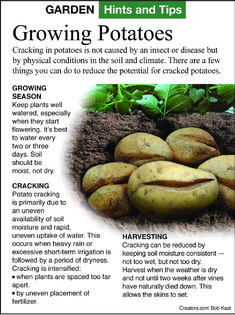The Greener View: Fall Vegetable Garden Questions
Q: Help! I planted my tomato plants late, and then we had a lot of hot, dry weather, so there were no tomatoes. Now there are dozens of green tomatoes, but our average first fall frost is coming soon, so I think that many of the tomatoes are still going to be green when the frost comes. Can I cover the plants? Can I spray water on them like in the orchards to prevent them from freezing? I only know a few recipes for green tomatoes. What can I do?
A: Tomato, pepper and many other summer vegetables ripen more slowly as the days become shorter and the weather cools off. Leaving the fruit on as long as you can will allow the fruit to get closer to being ripe, which will help when you do pick them. If there are a lot of vegetables to pick, don't wait until the day of the first frost or you may not get to them all, especially if it gets dark as you rush to pick them.
Tomatoes don't store for a long time when you pick them green, but they do store for several weeks. Place the bottom layer on cardboard, and place a layer of newspaper between any layers that you have to stack. Store at around 55 degrees. If you pick any with cracks or blemishes, you will need to process them within a few days. Don't store them with the healthy tomatoes.
You can ripen tomatoes more quickly after picking by placing them in a paper bag. It will trap ethylene gas that the fruit release, which helps them ripen. You can place an apple or banana in the bag, as they also release a lot of ethylene gas. Only green tomatoes that are mature will ripen further off the vine.
Peppers and many other garden vegetables that are not quite mature can still be harvested and processed or frozen. We eat green peppers all the time, so they can be harvested and stored in the refrigerator for several weeks before needing to be processed or cut up and frozen.
If vegetables are cut up and placed separately on trays in the freezer until frozen, they can be placed into freezer bags without sticking together.
You can cover some vegetable cool-season crops with row covers to prolong the garden, but for warm-season plants, you need a plastic greenhouse shelter. That should be planned for back in the spring with the hoops and watering system, etc., all figured out. At this time of year, you are better off just harvesting the fruit.
Q: I have only grown potatoes in my garden for a few years. This year, the potatoes are the normal size and shape, but many of them are cracked. I cooked a couple of them and they appear to be fine, but I don't think I can give them away like I usually do. What do you think happened so I can prevent it next year?
A: During the growth of the potato tuber, the plant needs even soil moisture. If the soil dries out and gets wet and then the cycle repeats, the tubers can be misshapen. If the tuber gets to full size and then the plant gets a lot more water, the tubers can swell and crack (just like tomato fruits). Wide swings in temperature can do the same thing.
Adding more organic matter so the soil holds more moisture will help. Next summer, a drip irrigation watering system could help keep the soil moisture level more steady.
========
Email questions to Jeff Rugg at info@greenerview.com. To find out more about Jeff Rugg and read features by other Creators Syndicate writers and cartoonists, visit the Creators Syndicate website at www.creators.com.
Copyright 2024 Jeff Rugg. Distributed By Creators.








Comments